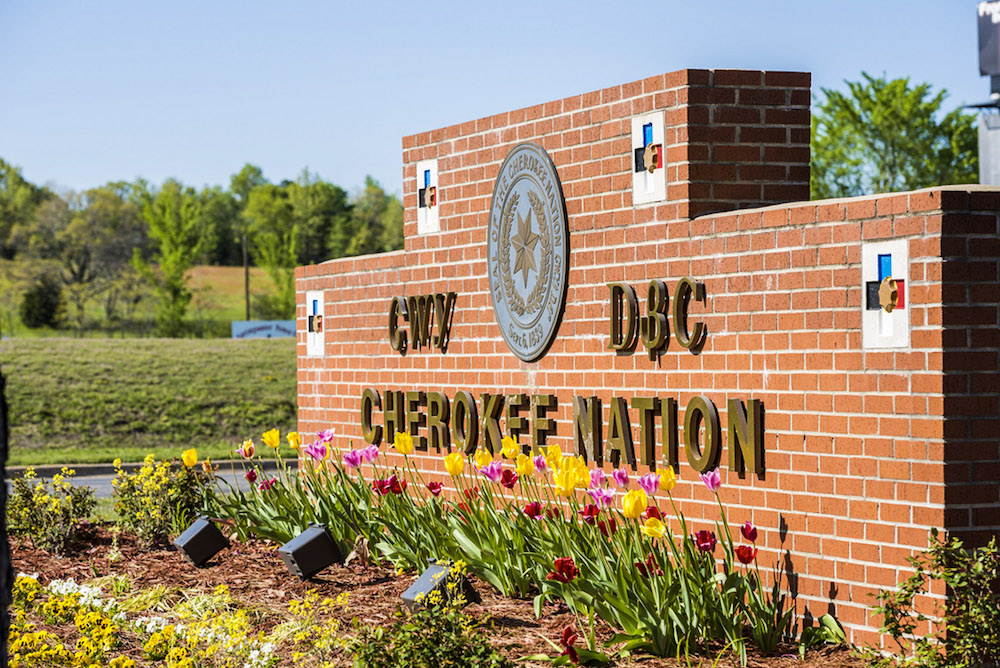
- Details
- By Chuck Hoskin Jr
Guest Opinion. The Cherokee Nation strives to be a great place to work, because we want the best and brightest to serve our community. In recent years, Cherokee Nation has made substantial investments in improving our work environment. Today, the Cherokee Nation government employs more 5,300 workers and Cherokee Nation Businesses more than 9,100. They bring their passion and skills every day and are deeply committed the success of our tribal nation.
To honor our committed team, we hosted a Cherokee Nation Employee Appreciation Day in Tahlequah. Our government staff is about 85% Cherokee citizens, with women making up 7 of every 10 employees. That’s representative of Cherokee Nation’s commitment to employing our own people, as well as valuing inclusion and equality.
Cherokee Nation recently conducted our first comprehensive compensation study, which directly resulted in significant pay increases for 80% of our workforce. These raises represent about a $10 million investment for the men and women uplifting our tribe, and much of that income goes right back into our community to lift the economy across northeast Oklahoma.
The initiative maintains a fair pay structure with a minimum wage progressively rising to $15 by 2025 — double the current federal and state minimum of $7.25. Our average salary — more than $65,000 — also stands well above the state average of $50,045. Of course, that includes a full package of competitive fringe benefits available to the entire workforce. We strive to be an employer of choice, and our efforts to pay competitive wages make that possible.
We are also investing in training opportunities, so Cherokee Nation staff can continually improve their skills and advance their careers. We've implemented a digital employee experience platform and established an executive coaching process. The Cherokee Nation workforce learning portal offers more than 1,500 online and instructor-led trainings, which empower employees with professional growth opportunities at their own pace.

We've made significant infrastructure investments ranging from the construction of new facilities to the addition of small, yet impactful, amenities such as lactation rooms for young families. We’ve expanded leave opportunities to address mental wellness and health, to support families who foster youth, and for expecting mothers. Our Child Flex Spending Account and Child Care Subsidy Program further support Cherokee Nation employees, easing the financial burden of childcare.
These improvements are part of our broader strategy to create a work environment that supports diverse families as well as a healthy work-life balance.
Additionally, Cherokee Nation is developing the next generation of support through a newly enhanced internship program and scholarship opportunities. These are essential for nurturing the passion and professional development of our younger citizens who we hope one day will come back and work for the people.
All these efforts and many more come from our profound appreciation for our employees. We know that a well-supported workforce is the foundation of our strength as a tribal nation. We will continue to elevate our employees through our highly respected Human Resources Department and lead as an example to follow in Oklahoma.
Chuck Hoskin, Jr. is the principal chief of the Cherokee Nation.
More Stories Like This
Tribes Seek Better Data, Real Accountability in MMIP Cases Ahead of Tribal ConsultationWhat Would Dr. King Say About ICE?
In Unity and Commitment
Protecting Our People through Human Trafficking Awareness
It is Time for Animal Behavior to Become Its Own Discipline
Help us defend tribal sovereignty.
At Native News Online, our mission is rooted in telling the stories that strengthen sovereignty and uplift Indigenous voices — not just at year’s end, but every single day.
Because of your generosity last year, we were able to keep our reporters on the ground in tribal communities, at national gatherings and in the halls of Congress — covering the issues that matter most to Indian Country: sovereignty, culture, education, health and economic opportunity.
That support sustained us through a tough year in 2025. Now, as we look to the year ahead, we need your help right now to ensure warrior journalism remains strong — reporting that defends tribal sovereignty, amplifies Native truth, and holds power accountable.
 The stakes couldn't be higher. Your support keeps Native voices heard, Native stories told and Native sovereignty defended.
The stakes couldn't be higher. Your support keeps Native voices heard, Native stories told and Native sovereignty defended.
Stand with Warrior Journalism today.
Levi Rickert (Potawatomi), Editor & Publisher

